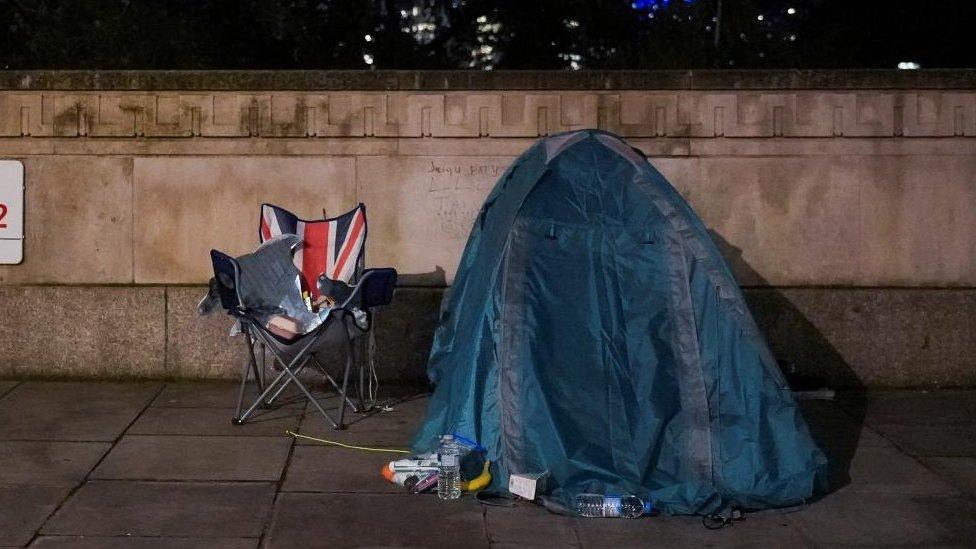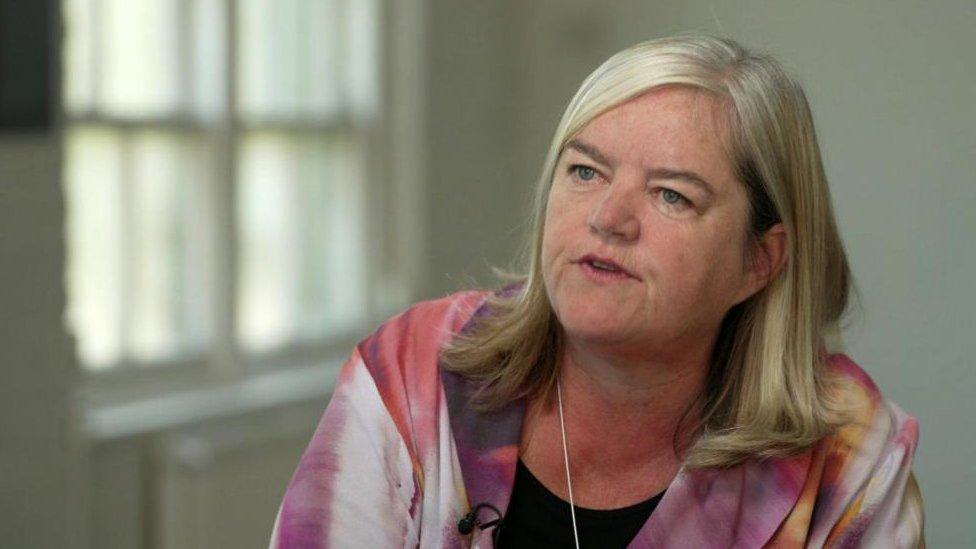Lessons for government as general election year looms
- Published

Homelessness is one of the long-term problems Baroness Casey has worked to resolve
Louise Casey has been a trouble-shooter for different governments for over 25 years.
She started working for ministers tackling rough sleeping, having first worked at the homelessness charity, Shelter. In 2010, she became Victims' Commissioner and then head of the Troubled Families unit.
Most recently, following the murder of Sarah Everard by a serving police officer, the peer produced a damning report on the culture of the Metropolitan Police.
Baroness Casey told the BBC's Political Thinking that she would work as a minister under Sir Keir Starmer if it was a job where she "could get something done", however she said she doubted the Labour leader would make her a minister.
With her long career in the charity sector and civil service, and with a place in the House of Lords, she's got ideas on how to improve the way the UK is run.
There are plenty of ways, she says, in which government, at all levels, doesn't work, and - ahead of the next General Election - outlines some of the challenges facing whoever takes power in 2024.
The first lesson she learned, on working with the civil service, was to get the prime minister behind you. "I used to have regular meetings with Tony Blair," she says.
The former PM told her: "The reason we would have stock takes and have you there with the ministers was to send them a signal that you had my backing. I was saying 'this is something that matters to me and therefore it should matter to you'. Because the one thing you have as the leader of the government is you have authority because frankly, everyone knows you appoint the ministers."
The second lesson: don't forget who you're making policy for.

"This may seem blindingly obvious, but too often well-intentioned politicians and officials don't understand the lives of the people they're developing policy for," she says.
"According to Chloe Juliette, associate director of research and engagement with the public, 'that leads to groupthink and poor understanding of this 'other' that they're trying to fix'," she explains.
Another lesson: constant churn of ministers and officials is deeply damaging.
"One of the people I worked with was Edward Timpson, the former Conservative children's minister. I had a really good conversation with him, but since he left his job six years ago, nine people have done it. Nobody can engage with the complexity of policy in a few months - let alone develop specialist knowledge and commitment."
Long-term issues are really hard to fix, she says. "They demand deep and long-term changes. They won't be fixed by initiatives, however well-intentioned."
She relates how Nicola Sturgeon, Scotland's former first minister, described the pressures ministers are under, looking for things that can be achieved early, conscious of the fact that if a government embarks on a long-term commitment, your party might not still be in government to see it through.
Baroness Casey says: "My solution? Ditch what I call policy initiative-itis. Get a proper strategy - involving all the key departments and across all of the issues that need solving.
"The worst sort of initiative is the legislative one. Politicians - and officials - thinking that 'we've passed that law', and walking off happily.
"The truth is that passing a law is the start, not the end, of fixing a problem."
Just one more lesson: Baroness Casey recounts that Michael Heseltine, the Conservative former deputy prime minister, was famous in Westminster for sometimes writing "JFDI" on documents sent to him for decision.
"At the start of a New Year, perhaps 'just… get on with it', is good advice not just for politicians, but for all of us."
A new BBC Radio 4 series, Fixing Britain with Louise Casey, starts on 1 January at 09:00 GMT.